Signs You Have A High Cholesterol
By Juliet S
1 year ago
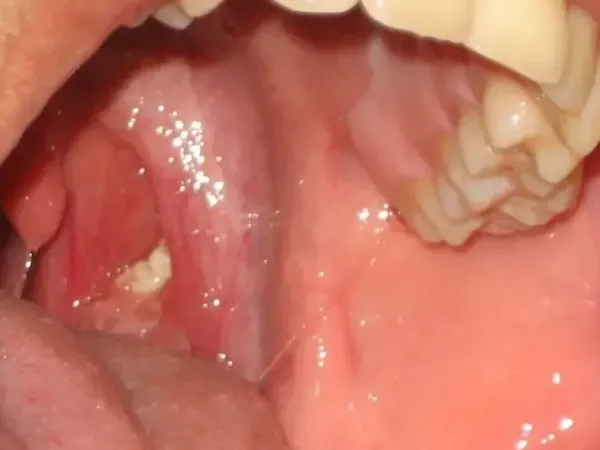 Bad breath isn’t just about what you had for lunch. When your cholesterol levels are high, it can lead to a condition called halitosis. Excessive cholesterol in your bloodstream can affect your saliva composition, creating an environment where bacteria thrive. The result? Unpleasant breath that might linger, no matter how diligent you are with your dental hygiene.
Bad breath isn’t just about what you had for lunch. When your cholesterol levels are high, it can lead to a condition called halitosis. Excessive cholesterol in your bloodstream can affect your saliva composition, creating an environment where bacteria thrive. The result? Unpleasant breath that might linger, no matter how diligent you are with your dental hygiene.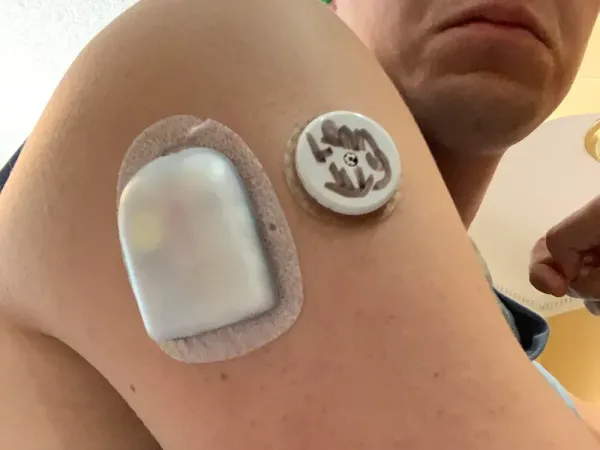 Your body may be signaling that something is off if you find yourself constantly reaching for a glass of water. Excessive thirst can be a symptom of diabetes. When blood sugar levels are elevated, your body tries to flush out the excess sugar through increased urination, leading to dehydration and an unquenchable thirst.
Your body may be signaling that something is off if you find yourself constantly reaching for a glass of water. Excessive thirst can be a symptom of diabetes. When blood sugar levels are elevated, your body tries to flush out the excess sugar through increased urination, leading to dehydration and an unquenchable thirst.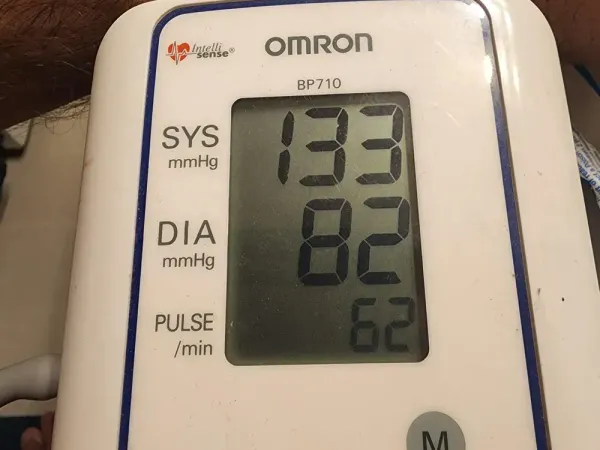 When you have high cholesterol, it can lead to the buildup of fatty deposits in your arteries. This makes them narrower and less flexible. So, this means that your heart has to work harder to pump blood through these narrowed arteries, causing an increase in blood pressure!
When you have high cholesterol, it can lead to the buildup of fatty deposits in your arteries. This makes them narrower and less flexible. So, this means that your heart has to work harder to pump blood through these narrowed arteries, causing an increase in blood pressure! Try the standing-on-one-leg test, is it very difficult? Again, it’s not a symptom that springs to mind when you think about the effects of high cholesterol – but it is a real consequence! Co-ordination can be subtly affected by your health, and by having high cholesterol.
Try the standing-on-one-leg test, is it very difficult? Again, it’s not a symptom that springs to mind when you think about the effects of high cholesterol – but it is a real consequence! Co-ordination can be subtly affected by your health, and by having high cholesterol. Eating a lot of processed foods, like snacks and fast food, means that you may be consuming an excessive amount of unhealthy fats and sugars that can mess with your cholesterol. These foods might raise the “bad” cholesterol (LDL) in your body – leading you to suffer from high cholesterol.
Eating a lot of processed foods, like snacks and fast food, means that you may be consuming an excessive amount of unhealthy fats and sugars that can mess with your cholesterol. These foods might raise the “bad” cholesterol (LDL) in your body – leading you to suffer from high cholesterol.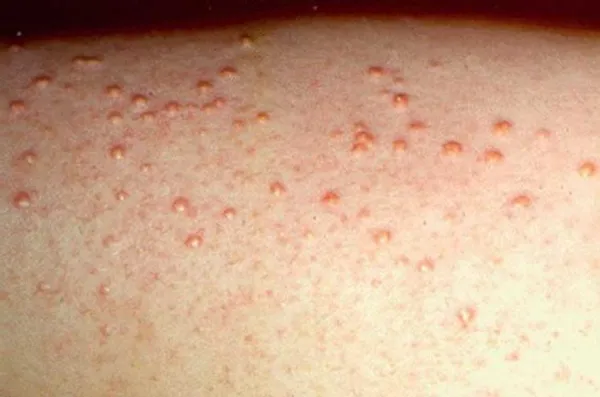 These bumps, known as xanthomas, result from the accumulation of cholesterol deposits under the skin. They often appear as yellowish or flesh-colored bumps and can be found on various parts of the body. Xanthomas are more commonly associated with extremely high levels of cholesterol!
These bumps, known as xanthomas, result from the accumulation of cholesterol deposits under the skin. They often appear as yellowish or flesh-colored bumps and can be found on various parts of the body. Xanthomas are more commonly associated with extremely high levels of cholesterol! Sleep disturbances could be linked to high cholesterol. Cholesterol plays a role in the production of hormones, including those that regulate sleep. Disruptions in cholesterol levels may impact your sleep patterns, leading to difficulty falling asleep or staying asleep.
Sleep disturbances could be linked to high cholesterol. Cholesterol plays a role in the production of hormones, including those that regulate sleep. Disruptions in cholesterol levels may impact your sleep patterns, leading to difficulty falling asleep or staying asleep.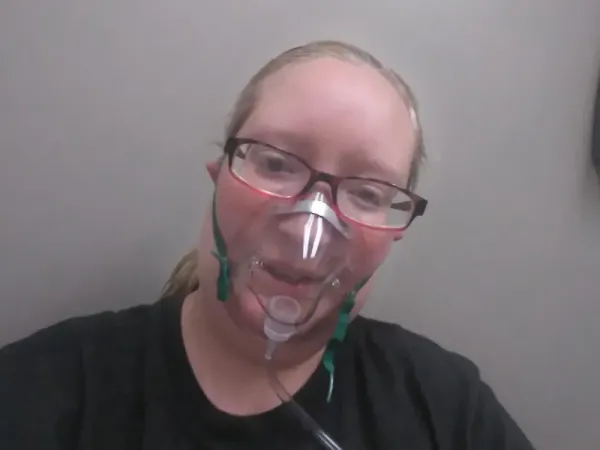 Shortness of breath can be a concerning symptom and you should pay attention to it. High cholesterol can contribute to the formation of plaques in the arteries, limiting oxygen-rich blood flow to the lungs. This can result in difficulty breathing or a feeling of breathlessness.
Shortness of breath can be a concerning symptom and you should pay attention to it. High cholesterol can contribute to the formation of plaques in the arteries, limiting oxygen-rich blood flow to the lungs. This can result in difficulty breathing or a feeling of breathlessness. If you’re not getting much exercise, it could be a sign that your cholesterol levels might be higher than they should be. Regular physical activity helps boost the “good” cholesterol (HDL) in your body and lowers the “bad” cholesterol (LDL) which helps to maintain healthy levels of cholesterol!
If you’re not getting much exercise, it could be a sign that your cholesterol levels might be higher than they should be. Regular physical activity helps boost the “good” cholesterol (HDL) in your body and lowers the “bad” cholesterol (LDL) which helps to maintain healthy levels of cholesterol!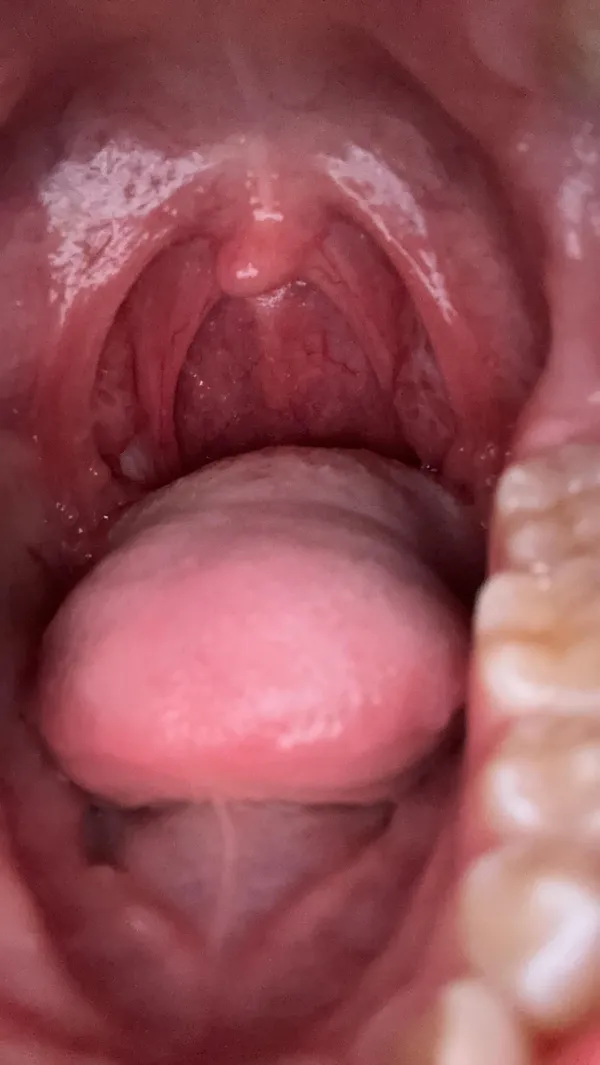 This persistent urge may be related to the potential impact of high cholesterol on your blood vessels and circulation. Cholesterol deposits can accumulate in the arteries, affecting blood flow not only to the heart but also to other parts of the body, including the throat.
This persistent urge may be related to the potential impact of high cholesterol on your blood vessels and circulation. Cholesterol deposits can accumulate in the arteries, affecting blood flow not only to the heart but also to other parts of the body, including the throat. Do you find yourself running out of energy sooner than usual? High cholesterol could be playing a role. It impacts the blood flow to your muscles, causing them to receive less oxygen. This can result in fatigue and a constant feeling of tiredness, even after a good night’s sleep.
Do you find yourself running out of energy sooner than usual? High cholesterol could be playing a role. It impacts the blood flow to your muscles, causing them to receive less oxygen. This can result in fatigue and a constant feeling of tiredness, even after a good night’s sleep. Some individuals with high cholesterol have reported experiencing difficulties with word recall and verbal fluency. The potential connection lies in the impact of cholesterol on our blood vessels and, consequently, on cognitive functions like our language processing abilities!
Some individuals with high cholesterol have reported experiencing difficulties with word recall and verbal fluency. The potential connection lies in the impact of cholesterol on our blood vessels and, consequently, on cognitive functions like our language processing abilities! One of the more common symptoms tied to high cholesterol is feeling pain in your legs when you walk. When cholesterol levels are too high, it can narrow your arteries, making it tough for blood to flow smoothly. This lack of proper blood flow can lead to pain or cramping in your legs, especially when you walk.
One of the more common symptoms tied to high cholesterol is feeling pain in your legs when you walk. When cholesterol levels are too high, it can narrow your arteries, making it tough for blood to flow smoothly. This lack of proper blood flow can lead to pain or cramping in your legs, especially when you walk. Beyond the usual culprit of sweating, elevated cholesterol levels can play a role in altering the composition of sweat – which can make us smell bad. And, the sebaceous glands, which are closely tied to hair follicles, produce a fatty substance that, when influenced by cholesterol imbalances, can contribute to a shift in the fragrance emitted by our bodies.
Beyond the usual culprit of sweating, elevated cholesterol levels can play a role in altering the composition of sweat – which can make us smell bad. And, the sebaceous glands, which are closely tied to hair follicles, produce a fatty substance that, when influenced by cholesterol imbalances, can contribute to a shift in the fragrance emitted by our bodies. Research suggests a potential link between elevated cholesterol levels and an increased risk of mood disorders. So, if you’ve been feeling consistently down or experiencing a lingering sense of sadness, it might be that you have high levels of cholesterol affecting you.
Research suggests a potential link between elevated cholesterol levels and an increased risk of mood disorders. So, if you’ve been feeling consistently down or experiencing a lingering sense of sadness, it might be that you have high levels of cholesterol affecting you. Changes like yellow discoloration or a noticeable decrease in growth rate may signify an imbalance or underlying issue, such as elevated cholesterol levels. Nails can serve as indicators because they are influenced by factors like blood circulation and nutritional health.
Changes like yellow discoloration or a noticeable decrease in growth rate may signify an imbalance or underlying issue, such as elevated cholesterol levels. Nails can serve as indicators because they are influenced by factors like blood circulation and nutritional health. When you have consistent moods that change like the wind you may not assume that it could be linked to your physical health. But, high cholesterol can have so many unexpected symptoms, one of these being that you may find your mood is very up and down!
When you have consistent moods that change like the wind you may not assume that it could be linked to your physical health. But, high cholesterol can have so many unexpected symptoms, one of these being that you may find your mood is very up and down! For women, irregular menstrual cycles could be a subtle indicator of cholesterol imbalances and high cholesterol. Cholesterol is involved in hormone production, and disruptions in these levels may affect your menstrual cycle in terms of how regular (or not) they are!
For women, irregular menstrual cycles could be a subtle indicator of cholesterol imbalances and high cholesterol. Cholesterol is involved in hormone production, and disruptions in these levels may affect your menstrual cycle in terms of how regular (or not) they are! Some individuals with high cholesterol have reported experiencing frequent instances of losing track of time and having no concept of what time it is. It seems that elevated cholesterol levels may play a role in affecting how our brain works and our time perception.
Some individuals with high cholesterol have reported experiencing frequent instances of losing track of time and having no concept of what time it is. It seems that elevated cholesterol levels may play a role in affecting how our brain works and our time perception. Chest pain is a red flag that should never be ignored. High cholesterol can lead to the formation of plaques in your arteries, restricting blood flow to your heart. This lack of proper blood supply can then cause you to have chest pain, which is known as angina.
Chest pain is a red flag that should never be ignored. High cholesterol can lead to the formation of plaques in your arteries, restricting blood flow to your heart. This lack of proper blood supply can then cause you to have chest pain, which is known as angina.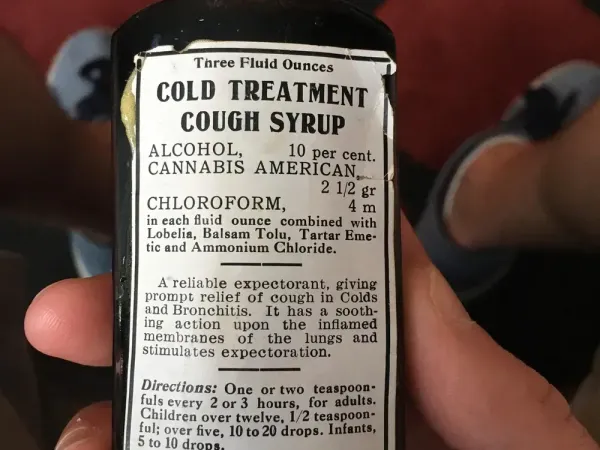 While coughing is not commonly associated with cholesterol issues, recent studies suggest a potential connection. Elevated cholesterol levels may contribute to inflammation and oxidative stress in the airways, possibly leading to a chronic cough that you can’t seem to get rid of!
While coughing is not commonly associated with cholesterol issues, recent studies suggest a potential connection. Elevated cholesterol levels may contribute to inflammation and oxidative stress in the airways, possibly leading to a chronic cough that you can’t seem to get rid of! Feeling sore after a workout is one thing, but persistent muscle aches, especially in your legs or back, might be trying to tell you something more. It turns out, that high cholesterol could be sneakily messing with your muscles’ blood supply, causing that unwelcome discomfort.
Feeling sore after a workout is one thing, but persistent muscle aches, especially in your legs or back, might be trying to tell you something more. It turns out, that high cholesterol could be sneakily messing with your muscles’ blood supply, causing that unwelcome discomfort. Changes in cholesterol levels can impact metabolism, potentially leading to increased weight, particularly around the abdomen. If you’re experiencing unexpected weight changes, it’s vital to consider whether elements like diet, exercise, and cholesterol levels have a part to play!
Changes in cholesterol levels can impact metabolism, potentially leading to increased weight, particularly around the abdomen. If you’re experiencing unexpected weight changes, it’s vital to consider whether elements like diet, exercise, and cholesterol levels have a part to play! Headaches can have various causes, and high cholesterol is one of them. When cholesterol builds up in your blood vessels, it can affect the blood supply to your brain, which can then cause headaches. If you’re experiencing persistent or even severe headaches.
Headaches can have various causes, and high cholesterol is one of them. When cholesterol builds up in your blood vessels, it can affect the blood supply to your brain, which can then cause headaches. If you’re experiencing persistent or even severe headaches.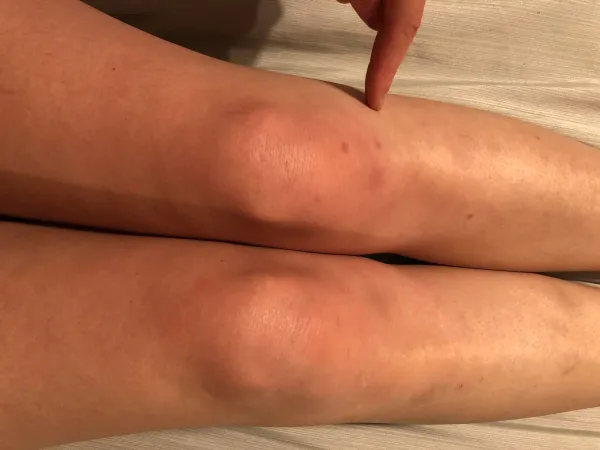 Aching or sore knees, hips, or even fingers may be a sign that you have high cholesterol! Joint pain can be a sign that your cholesterol levels need attention. High cholesterol can contribute to inflammation in the joints, causing pain and discomfort.
Aching or sore knees, hips, or even fingers may be a sign that you have high cholesterol! Joint pain can be a sign that your cholesterol levels need attention. High cholesterol can contribute to inflammation in the joints, causing pain and discomfort. Hiccupping can be a very unexpected symptom of high cholesterol. While less common, there is a connection between high cholesterol and persistent hiccups. High cholesterol may contribute to disturbances in the diaphragm, the muscle responsible for breathing and controlling hiccups.
Hiccupping can be a very unexpected symptom of high cholesterol. While less common, there is a connection between high cholesterol and persistent hiccups. High cholesterol may contribute to disturbances in the diaphragm, the muscle responsible for breathing and controlling hiccups. Your skin might be trying to tell you something about your cholesterol levels. High cholesterol can lead to the formation of yellowish patches (properly known as xanthomas) on various parts of your skin. These deposits are usually found around your eyes, elbows, or knees.
Your skin might be trying to tell you something about your cholesterol levels. High cholesterol can lead to the formation of yellowish patches (properly known as xanthomas) on various parts of your skin. These deposits are usually found around your eyes, elbows, or knees. Have you noticed that foods don’t taste the same way that they used to? Or, there’s a strange taste in your mouth? When you have high cholesterol levels, they might impact the functioning of taste buds and olfactory receptors, affecting the perception of flavors!
Have you noticed that foods don’t taste the same way that they used to? Or, there’s a strange taste in your mouth? When you have high cholesterol levels, they might impact the functioning of taste buds and olfactory receptors, affecting the perception of flavors!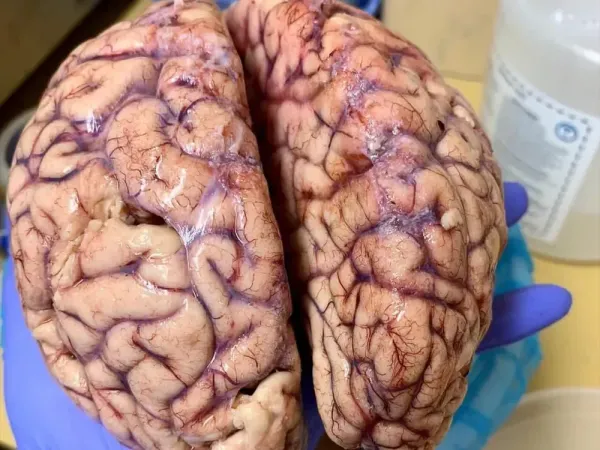 High cholesterol might not only affect your physical health but also your cognitive function. Reduced blood flow to the brain due to cholesterol buildup can result in difficulty concentrating and memory issues. If you find it hard to stay focused or notice changes in your mental clarity, consider checking your cholesterol levels.
High cholesterol might not only affect your physical health but also your cognitive function. Reduced blood flow to the brain due to cholesterol buildup can result in difficulty concentrating and memory issues. If you find it hard to stay focused or notice changes in your mental clarity, consider checking your cholesterol levels. Experiencing random dizzy spells could be a sign that your cholesterol levels are elevated. High cholesterol can lead to the buildup of plaque in the arteries, restricting blood flow to the brain. When the brain doesn’t receive an adequate supply of blood, it can result in dizziness or lightheadedness.
Experiencing random dizzy spells could be a sign that your cholesterol levels are elevated. High cholesterol can lead to the buildup of plaque in the arteries, restricting blood flow to the brain. When the brain doesn’t receive an adequate supply of blood, it can result in dizziness or lightheadedness. Itchy skin can be an annoying symptom, and surprisingly it might be linked to your cholesterol levels. Elevated cholesterol can contribute to the formation of dry skin, making you feel constantly itchy. If you find yourself scratching more than usual, consider having your cholesterol levels checked!
Itchy skin can be an annoying symptom, and surprisingly it might be linked to your cholesterol levels. Elevated cholesterol can contribute to the formation of dry skin, making you feel constantly itchy. If you find yourself scratching more than usual, consider having your cholesterol levels checked! Who knew that our mood could be linked to cholesterol? Cholesterol imbalances can affect the production of hormones and neurotransmitters, influencing mood and behavior and making us a lot less patient. High cholesterol can make you much more irritated than you should feel.
Who knew that our mood could be linked to cholesterol? Cholesterol imbalances can affect the production of hormones and neurotransmitters, influencing mood and behavior and making us a lot less patient. High cholesterol can make you much more irritated than you should feel.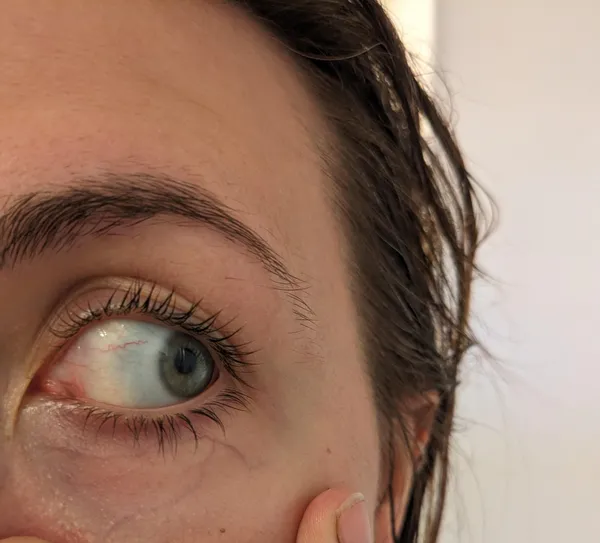 Your eyes can provide insights into your overall health, including your cholesterol levels. High cholesterol can contribute to the development of yellowish deposits on the cornea, known as arcus senilis. And, it may increase the risk of eye conditions that affect blood vessels, which could cause vision problems.
Your eyes can provide insights into your overall health, including your cholesterol levels. High cholesterol can contribute to the development of yellowish deposits on the cornea, known as arcus senilis. And, it may increase the risk of eye conditions that affect blood vessels, which could cause vision problems. Bathroom habits aren’t something to overlook! When you notice that you’re making more trips to the bathroom than usual, high cholesterol might be a factor. Cholesterol buildup in the blood vessels can impact kidney function, leading to increased urine production.
Bathroom habits aren’t something to overlook! When you notice that you’re making more trips to the bathroom than usual, high cholesterol might be a factor. Cholesterol buildup in the blood vessels can impact kidney function, leading to increased urine production. High cholesterol can also massively impact your sexual health, affecting blood flow to various parts of the body, including the genital region. As a result, it can be very difficult to conceive, because the entire act is much more difficult with high cholesterol!
High cholesterol can also massively impact your sexual health, affecting blood flow to various parts of the body, including the genital region. As a result, it can be very difficult to conceive, because the entire act is much more difficult with high cholesterol! Surprisingly, hair loss and hair thinning could be more than an aesthetic concern; there might be a link to cholesterol levels. Imbalances in cholesterol can throw off the delicate dance of blood circulation, influencing the health of hair follicles and causing noticeable shifts in hair growth.
Surprisingly, hair loss and hair thinning could be more than an aesthetic concern; there might be a link to cholesterol levels. Imbalances in cholesterol can throw off the delicate dance of blood circulation, influencing the health of hair follicles and causing noticeable shifts in hair growth. If you don’t feel the same level of desires as you used to, it’s not something to dismiss as aging or a phase that never ends. It could have a deeper meaning. Having high cholesterol can really impact how you feel, and not feeling in the mood to be physically intimate!
If you don’t feel the same level of desires as you used to, it’s not something to dismiss as aging or a phase that never ends. It could have a deeper meaning. Having high cholesterol can really impact how you feel, and not feeling in the mood to be physically intimate! Experiencing a stroke is a serious and concerning event that can be associated with underlying cardiovascular issues, including high cholesterol. A stroke occurs when there is a disruption in blood flow to the brain, often caused by a blocked or ruptured blood vessel!
Experiencing a stroke is a serious and concerning event that can be associated with underlying cardiovascular issues, including high cholesterol. A stroke occurs when there is a disruption in blood flow to the brain, often caused by a blocked or ruptured blood vessel! The reduced blood flow and potential formation of plaques in the arteries are caused by high cholesterol. can then contribute to difficulties in concentration and focus. If you’re consistently experiencing challenges in staying attentive or focused, it’s worth having your cholesterol checked out!
The reduced blood flow and potential formation of plaques in the arteries are caused by high cholesterol. can then contribute to difficulties in concentration and focus. If you’re consistently experiencing challenges in staying attentive or focused, it’s worth having your cholesterol checked out! Difficulty swallowing, which is also known as dysphagia, might be linked to having high cholesterol levels. Cholesterol imbalances can contribute to the formation of plaques in the arteries, impacting blood flow to the muscles involved in swallowing!
Difficulty swallowing, which is also known as dysphagia, might be linked to having high cholesterol levels. Cholesterol imbalances can contribute to the formation of plaques in the arteries, impacting blood flow to the muscles involved in swallowing! Handwriting, or things like drawing or painting, may become more challenging as the fine details and control required could be affected. Your once smooth handwriting may have been replaced by shaky scrawl – and it could all be because you have high cholesterol levels!
Handwriting, or things like drawing or painting, may become more challenging as the fine details and control required could be affected. Your once smooth handwriting may have been replaced by shaky scrawl – and it could all be because you have high cholesterol levels! While not a common symptom, some individuals with elevated cholesterol levels have reported a persistent metallic taste. The exact mechanism behind this association is not fully understood, but it could be linked to changes in saliva, created by high cholesterol!
While not a common symptom, some individuals with elevated cholesterol levels have reported a persistent metallic taste. The exact mechanism behind this association is not fully understood, but it could be linked to changes in saliva, created by high cholesterol! If you’re having a lot of “I forgot where I put my keys” moments, it might be related to high cholesterol. Turns out, having too much cholesterol floating around can mess with the blood flow to your brain. It can be much harder to remember the things you need to.
If you’re having a lot of “I forgot where I put my keys” moments, it might be related to high cholesterol. Turns out, having too much cholesterol floating around can mess with the blood flow to your brain. It can be much harder to remember the things you need to. Spatial awareness relies on the brain’s ability to process information about the body’s position about its surroundings. Reduced blood flow due to cholesterol-related issues may impact this cognitive function, leading to difficulties in spatial awareness.
Spatial awareness relies on the brain’s ability to process information about the body’s position about its surroundings. Reduced blood flow due to cholesterol-related issues may impact this cognitive function, leading to difficulties in spatial awareness. Have you or anyone around you noticed that you’re sounding a bit different recently? High cholesterol can actually lead to alterations in the way you sound! If you’re noticing this unusual shift in your voice, it’s a good idea to consider checking your cholesterol levels.
Have you or anyone around you noticed that you’re sounding a bit different recently? High cholesterol can actually lead to alterations in the way you sound! If you’re noticing this unusual shift in your voice, it’s a good idea to consider checking your cholesterol levels. When you have high cholesterol one of the unusual effects that you may notice, is subtle, or even not-so-subtle changes to your fine motor skills. Reduced blood flow to extremities can affect nerve function and coordination, meaning once simple tasks are becoming much more difficult.
When you have high cholesterol one of the unusual effects that you may notice, is subtle, or even not-so-subtle changes to your fine motor skills. Reduced blood flow to extremities can affect nerve function and coordination, meaning once simple tasks are becoming much more difficult.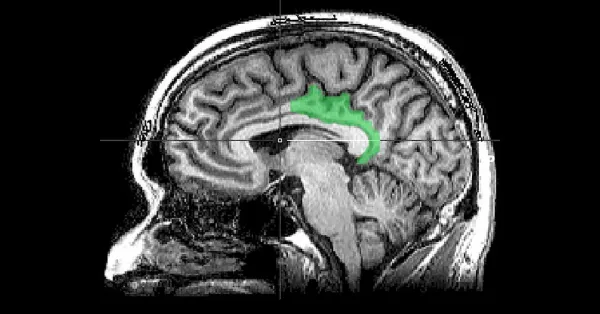 Usually when you make a decision, even if it’s a difficult decision to make, you are thinking with a clear head. But sometimes, high cholesterol can make it feel like you are trying to make a decision when your mind is murky like you can’t think clearly anymore!
Usually when you make a decision, even if it’s a difficult decision to make, you are thinking with a clear head. But sometimes, high cholesterol can make it feel like you are trying to make a decision when your mind is murky like you can’t think clearly anymore! If you’re finding it challenging to carry out precise tasks that require fine motor skills, such as buttoning a shirt or tying shoelaces, it might be related to elevated cholesterol levels. This can lead to difficulties in performing intricate tasks.
If you’re finding it challenging to carry out precise tasks that require fine motor skills, such as buttoning a shirt or tying shoelaces, it might be related to elevated cholesterol levels. This can lead to difficulties in performing intricate tasks.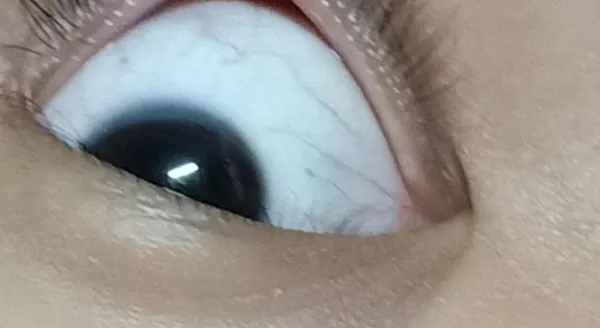 Another symptom to look out for if you want to find out if you have high cholesterol is a grey ring around your iris. It may have formed when it was never there before. It’s a subtle indicator that your lipid levels are causing some concerns within your body.
Another symptom to look out for if you want to find out if you have high cholesterol is a grey ring around your iris. It may have formed when it was never there before. It’s a subtle indicator that your lipid levels are causing some concerns within your body. When your muscles start to complain consistently with mysterious aches and pains, it might be worth considering cholesterol as a potential culprit. This silent discomfort could be your body’s way of hinting that you have an underlying cardiovascular problem.
When your muscles start to complain consistently with mysterious aches and pains, it might be worth considering cholesterol as a potential culprit. This silent discomfort could be your body’s way of hinting that you have an underlying cardiovascular problem. Suddenly dropping pounds without a change in diet or exercise routines? While it might sound welcome, unexplained weight loss can sometimes be tied back to high cholesterol and related metabolic disturbances.
Suddenly dropping pounds without a change in diet or exercise routines? While it might sound welcome, unexplained weight loss can sometimes be tied back to high cholesterol and related metabolic disturbances. If you’re often plagued by heartburn or a feeling of indigestion that doesn't seem to be connected to what you eat, consider checking your cholesterol levels. High cholesterol can impact your digestive system's normal functioning.
If you’re often plagued by heartburn or a feeling of indigestion that doesn't seem to be connected to what you eat, consider checking your cholesterol levels. High cholesterol can impact your digestive system's normal functioning.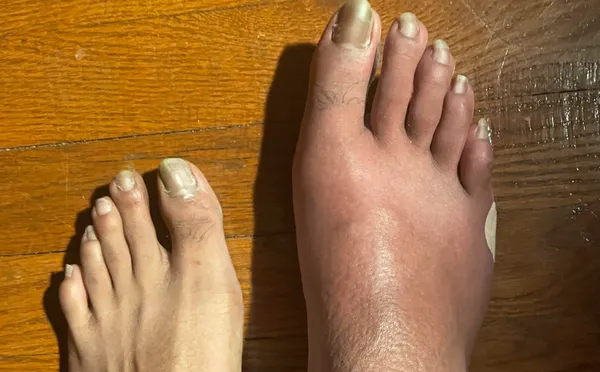 Notice any unusual swelling in your hands or feet? This can be a sign of poor blood circulation often associated with elevated cholesterol levels, which may be causing blockages or narrowing in your veins.
Notice any unusual swelling in your hands or feet? This can be a sign of poor blood circulation often associated with elevated cholesterol levels, which may be causing blockages or narrowing in your veins.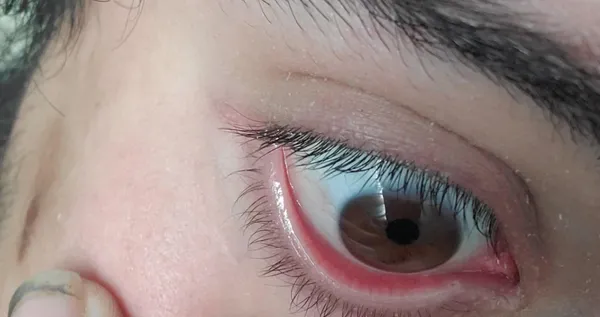 Experiencing sudden blurriness or vision issues without an obvious cause might be a lesser-known sign of high cholesterol, as fat deposits can affect the tiny arteries in your eyes.
Experiencing sudden blurriness or vision issues without an obvious cause might be a lesser-known sign of high cholesterol, as fat deposits can affect the tiny arteries in your eyes.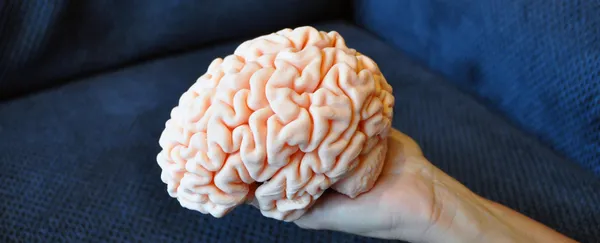 Struggling to remember details or experiencing general brain fog? High cholesterol can affect cognitive function, leading to subtle memory problems over time.
Struggling to remember details or experiencing general brain fog? High cholesterol can affect cognitive function, leading to subtle memory problems over time. A persistent heavy or tight feeling in your chest can be a direct warning sign of heart issues linked to high cholesterol. It’s your body signaling that something might be amiss with your heart health.
A persistent heavy or tight feeling in your chest can be a direct warning sign of heart issues linked to high cholesterol. It’s your body signaling that something might be amiss with your heart health.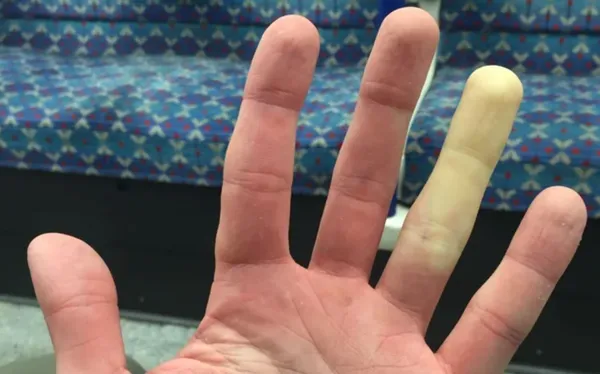 Feeling numbness or tingling in your fingers and toes can be alarming! This could be due to the reduced circulation from narrowed or blocked arteries, a side effect of high cholesterol.
Feeling numbness or tingling in your fingers and toes can be alarming! This could be due to the reduced circulation from narrowed or blocked arteries, a side effect of high cholesterol. Even after a good night’s sleep, if you still feel drained, it might relate to your heart working harder than usual due to high cholesterol levels straining your cardiovascular system.
Even after a good night’s sleep, if you still feel drained, it might relate to your heart working harder than usual due to high cholesterol levels straining your cardiovascular system. Feeling more anxious than usual? While not a direct symptom, high cholesterol can exacerbate stress levels by impacting overall heart health and hormone balance.
Feeling more anxious than usual? While not a direct symptom, high cholesterol can exacerbate stress levels by impacting overall heart health and hormone balance. Notice your skin appearing paler, or spotted with discoloration? It could be a circulation issue related to cholesterol-blocked arteries, preventing normal blood flow to your skin.
Notice your skin appearing paler, or spotted with discoloration? It could be a circulation issue related to cholesterol-blocked arteries, preventing normal blood flow to your skin. A sudden decrease in your appetite that doesn't align with your usual eating habits could be indirectly linked to your body coping with inefficient blood flow from high cholesterol.
A sudden decrease in your appetite that doesn't align with your usual eating habits could be indirectly linked to your body coping with inefficient blood flow from high cholesterol.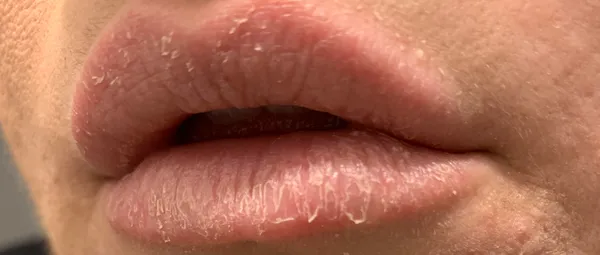 Persistent dryness or cracks in your lips, despite regular hydration and balms, may signal dehydration or poor circulation, often seen in individuals with elevated cholesterol levels.
Persistent dryness or cracks in your lips, despite regular hydration and balms, may signal dehydration or poor circulation, often seen in individuals with elevated cholesterol levels. Experiencing more hair fall than usual? It might be a result of poor circulation due to blocked arteries, a common issue for those struggling with high cholesterol.
Experiencing more hair fall than usual? It might be a result of poor circulation due to blocked arteries, a common issue for those struggling with high cholesterol.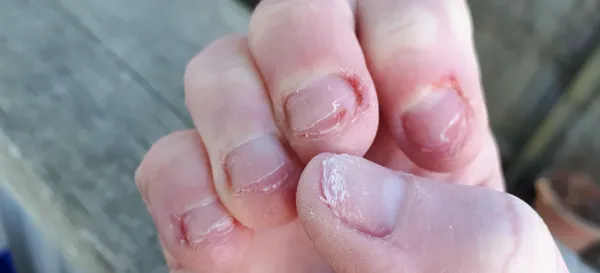 If your nails break easily or look unusually brittle, this could be another subtle sign of circulation issues connected to high cholesterol impacting nutrient delivery to your nails.
If your nails break easily or look unusually brittle, this could be another subtle sign of circulation issues connected to high cholesterol impacting nutrient delivery to your nails.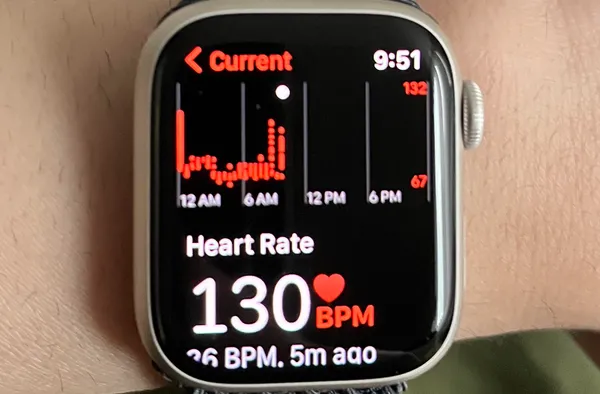 Feeling your heart flutter or skip a beat occasionally? High cholesterol can lead to heart arrhythmias by causing blockages and affecting the heart's normal rhythm.
Feeling your heart flutter or skip a beat occasionally? High cholesterol can lead to heart arrhythmias by causing blockages and affecting the heart's normal rhythm. Feeling unusually sensitive to cold, particularly in your extremities, could be due to poor circulation often associated with high levels of cholesterol.
Feeling unusually sensitive to cold, particularly in your extremities, could be due to poor circulation often associated with high levels of cholesterol.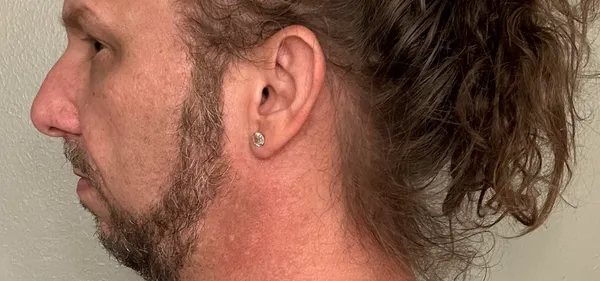 Experiencing unexpected aches in your neck or jaw could be linked to the strain and stress high cholesterol puts on your cardiovascular system.
Experiencing unexpected aches in your neck or jaw could be linked to the strain and stress high cholesterol puts on your cardiovascular system. Prominent dark circles, despite getting enough rest, could be a sign of poor circulation, a lesser-known consequence of high cholesterol levels.
Prominent dark circles, despite getting enough rest, could be a sign of poor circulation, a lesser-known consequence of high cholesterol levels.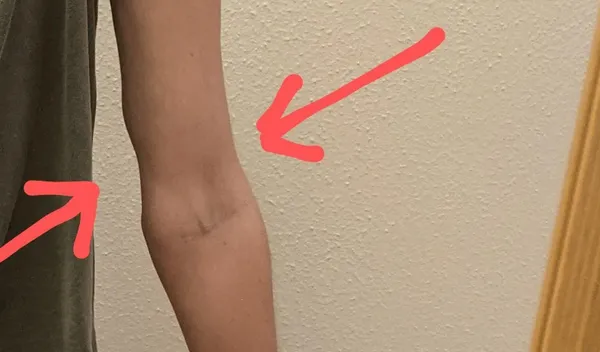 Noticing that your reflexes are slower than before? It might be due to nerve damage from poor blood circulation, often resulting from high cholesterol.
Noticing that your reflexes are slower than before? It might be due to nerve damage from poor blood circulation, often resulting from high cholesterol. Finding yourself tiring out quicker than usual during physical activities? It could be due to your heart working harder to pump blood through clogged arteries, a common issue when cholesterol levels are high.
Finding yourself tiring out quicker than usual during physical activities? It could be due to your heart working harder to pump blood through clogged arteries, a common issue when cholesterol levels are high.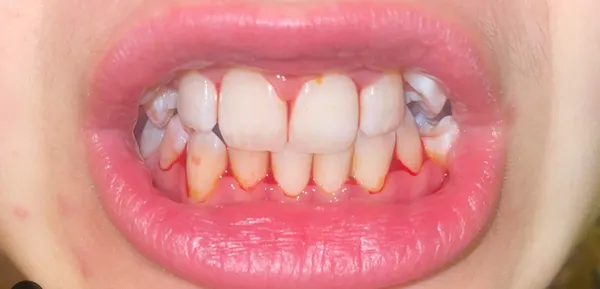 Surprised by bleeding gums while brushing or flossing? This can be connected to poor vascular health, often deteriorated by high cholesterol, leading to weaker blood vessels.
Surprised by bleeding gums while brushing or flossing? This can be connected to poor vascular health, often deteriorated by high cholesterol, leading to weaker blood vessels. Experiencing a sudden decrease in hearing ability might be a rare but possible effect of high cholesterol, as it can affect the blood supply to the auditory organs.
Experiencing a sudden decrease in hearing ability might be a rare but possible effect of high cholesterol, as it can affect the blood supply to the auditory organs. Finding yourself unusually thirsty could also be an indirect sign of high cholesterol, particularly if it's leading to dehydration or affecting kidney function.
Finding yourself unusually thirsty could also be an indirect sign of high cholesterol, particularly if it's leading to dehydration or affecting kidney function. If you’re having nosebleeds more often, it could be a sign of hypertension, which frequently accompanies high cholesterol.
If you’re having nosebleeds more often, it could be a sign of hypertension, which frequently accompanies high cholesterol. Unexplained stomach pain might be caused by decreased blood flow to abdominal organs, a risk in those with high cholesterol.
Unexplained stomach pain might be caused by decreased blood flow to abdominal organs, a risk in those with high cholesterol. Noticing swollen lymph nodes? While often a sign of infection, persistent swelling could also be due to poor circulation associated with high cholesterol.
Noticing swollen lymph nodes? While often a sign of infection, persistent swelling could also be due to poor circulation associated with high cholesterol.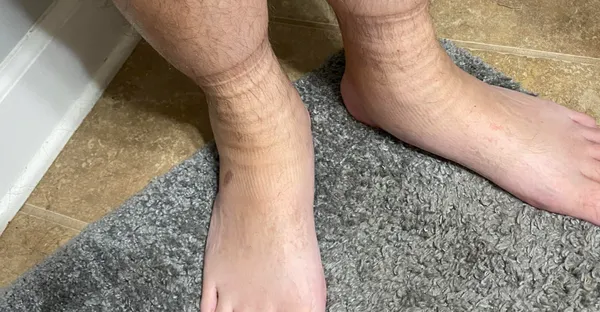 Feeling occasional sharp, electrical pains in your arms or legs could be a warning signal from nerves affected by reduced blood flow from thickened arterial walls due to high cholesterol.
Feeling occasional sharp, electrical pains in your arms or legs could be a warning signal from nerves affected by reduced blood flow from thickened arterial walls due to high cholesterol.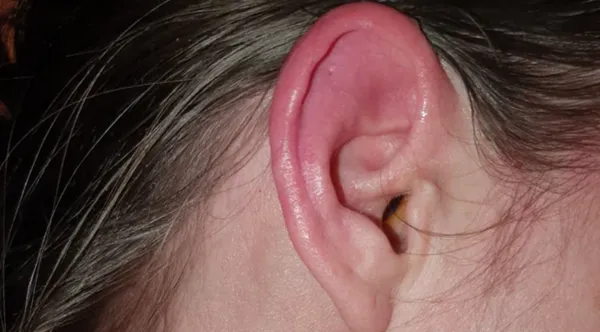 A persistent or intermittent ringing in your ears, known as tinnitus, can sometimes be linked to blood flow issues caused by high cholesterol.
A persistent or intermittent ringing in your ears, known as tinnitus, can sometimes be linked to blood flow issues caused by high cholesterol. Weakness in the lower legs can also be a sign of restricted blood flow due to high cholesterol, affecting muscle and nerve health in your limbs.
Weakness in the lower legs can also be a sign of restricted blood flow due to high cholesterol, affecting muscle and nerve health in your limbs.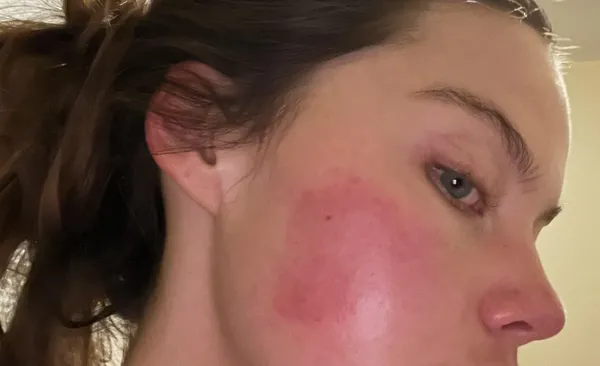 Experiencing sudden redness of the face? While often a sign of fluctuating blood pressure, it can also be influenced by high cholesterol impacting blood circulation.
Experiencing sudden redness of the face? While often a sign of fluctuating blood pressure, it can also be influenced by high cholesterol impacting blood circulation.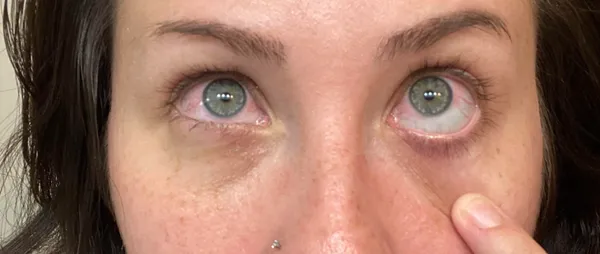 Becoming more sensitive to light, especially bright lights, can be a subtle symptom related to high cholesterol, affecting the eyes' ability to handle light changes.
Becoming more sensitive to light, especially bright lights, can be a subtle symptom related to high cholesterol, affecting the eyes' ability to handle light changes.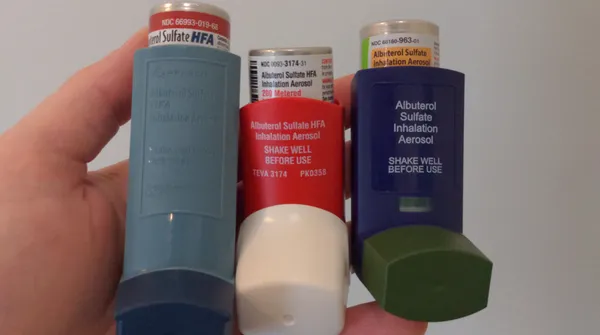 Feeling short of breath when you lie down can be a sign of heart problems associated with high cholesterol, affecting your cardiovascular efficiency.
Feeling short of breath when you lie down can be a sign of heart problems associated with high cholesterol, affecting your cardiovascular efficiency. Finding yourself needing to urinate more often than usual without an increase in fluid intake might be a sign of a body struggling with the effects of high cholesterol.
Finding yourself needing to urinate more often than usual without an increase in fluid intake might be a sign of a body struggling with the effects of high cholesterol. Waking up drenched in sweat during the night might not just be about your blankets or room temperature. It could be a response to cardiovascular strain from high cholesterol.
Waking up drenched in sweat during the night might not just be about your blankets or room temperature. It could be a response to cardiovascular strain from high cholesterol. Seeing spots or 'floaters' in your vision occasionally? While generally harmless, frequent occurrences can be related to high cholesterol affecting eye health.
Seeing spots or 'floaters' in your vision occasionally? While generally harmless, frequent occurrences can be related to high cholesterol affecting eye health. Snoring more loudly or frequently can be a sign of sleep apnea, which is often associated with high cholesterol and its impact on respiratory functions.
Snoring more loudly or frequently can be a sign of sleep apnea, which is often associated with high cholesterol and its impact on respiratory functions. Feeling increasingly isolated or experiencing bouts of depression could be linked to the overall health impact high cholesterol can have, potentially altering mood regulation.
Feeling increasingly isolated or experiencing bouts of depression could be linked to the overall health impact high cholesterol can have, potentially altering mood regulation. Finding it hard to climb stairs? This could be due to muscle weakness or fatigue caused by reduced blood flow from high cholesterol.
Finding it hard to climb stairs? This could be due to muscle weakness or fatigue caused by reduced blood flow from high cholesterol.